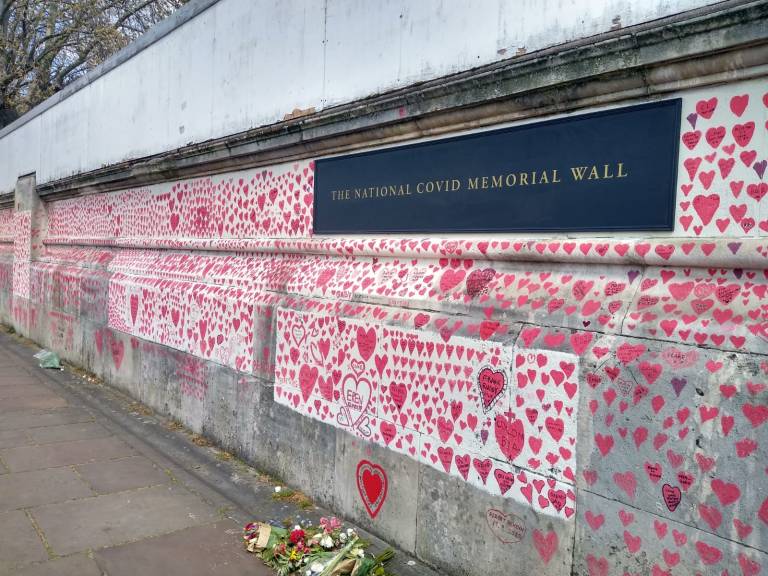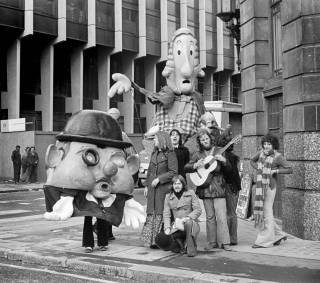During the academic years 2022/23 and 23/24 Urban Lab is working with the theme of Memory as an overarching framework for our cross-disciplinary urban investigations and collaborations.

Following on from our previous theme, Emergency, this is in large part a response to the work that needs to be done to process our individual and collective experiences of living through the pandemic, its lockdowns and bereavements, trauma and grief, unprecedented in modern times for many. It is also a response to the exciting current and future prospects offered by the official opening to the public in January 2023 of the new UCL Urban Room and integral Memory Workshop which Urban Lab is co-managing at UCL East, on behalf of the Bartlett, in collaboration with the new School for Creative and Cultural Industries – including the MA in Public History programme and UCL Special Collections.
After many years of planning, seeing this space finally in action to accommodate teaching on our new MASc Global Urbanism programme and a whole range of public-facing activities, workshops and events, is a significant moment in Urban Lab’s history that prompts reflection on our past as much as on our plans for the future.
We have welcomed as Curator of this space Dr Kara Blackmore, whose own expertise in the field brings an important resource for us to draw on. As she explains, ‘memory work’ often addresses past conflicts or traumas in order to understand their impacts and determine subsequent strategies for repair or reconciliation (Edkins 2003, Rigney 2012). Viejo-Rose (2015) points to the origins of Memory Studies in Holocaust Studies, with a corresponding focus on violence and loss. She distinguishes it from Heritage Studies in drawing primarily on critical theory and literary analysis informed by culture studies and historiography to explore how memory is narrated in a wide variety of forms and formats. By contrast, the latter uses tools from archaeology, anthropology, museum studies, and architectural history and conservation to explore the meanings of materiality, preservation and presentation. In this field, trajectories diverge between ‘authorised heritage discourse’ and ‘critical heritage studies’, with a focus in CHS on diversification, democratisation, and participation in what is understood as heritage.
But memory and heritage are closely interlinked and fundamental to experience and interaction in and between urban contexts. Many different memory types have been identified and theorised, including historical, digital, social, personal, cognitive, habit, and body memory. These speak to different aspects of human cognitive and sensory functionality, inculturation in social worlds, and engagement in formal and informal practices of narrative construction (written history, archives, monuments) and recollection (social or collective memory, embodied and cultural practices) to make sense of the past, which are key to forming present and future identities. As Dr Anna Maguire, director of MA Public History, explains, citing Raphael Samuel (1994), popular memory can be understood as the antithesis of formal written histories, and memory and public history are most readily associated through the practice of oral history. Originally promoted by Socialist historians, oral history has developed to recover the histories and cultures of subordinate, subaltern or marginalised social groups which are not recorded in official narrative histories (Connerton 1989), and places an emphasis on the collective character of memory.
Cities and landscapes have received considerable attention as mnemonic systems, acting as ‘memoryscapes’ (Basu 2013) through places, paths, and monuments (Tilley 1994), patterns and space syntax, navigated individually and collectively. In this field, radical and alternative cartography has played an important role in recovering and making sense of memory embedded in place, which has been particularly valuable in relation to processes of urban change. Heritage studies have been key to understanding how social memory is embodied in an assemblage of inherited material fabric and infrastructure, natural resources and associated cultural practices, forming the substance of continuity between generations across human societies - but also a complex field of contestation in which different social identities and claims to space and resources are embedded, as manifested during the Black Lives Matter protests of 2020, catalysing public debate about processes of memorialisation.
Bloomer and Moore emphasised the interconnection of bodily and mental experience in the relationship between humans and place, and the function of memory in recalling and processing this experience, while noting that ‘The importance of memory as a part of our existence in the environment has frequently been denied in this century and by some is even now rather embarrassedly characterized as “nostalgia” and dismissed again’ (Bloomer and Moore 1977). In opening up this space for free exploration of the ramifications of Memory for understanding and analysis of urban social and spatial contexts, we aim to provide an opportunity for a range of different voices and perspectives to contribute to this ongoing debate, in response to the following suggested questions:
- How can attention to Memory deepen insights into and understanding of urban contexts?
- How do institutions, sites and practices channel and challenge collective and personal memory/memories in relation to urban and social change?
- Where does forgetting intersect with Memory in the production of urban environments?
- What processes can be used to capture memory in different types of urban setting?
- What kinds of outputs might help to explore and communicate the importance of memory in the urban environment to different kinds of audience?
 Close
Close


